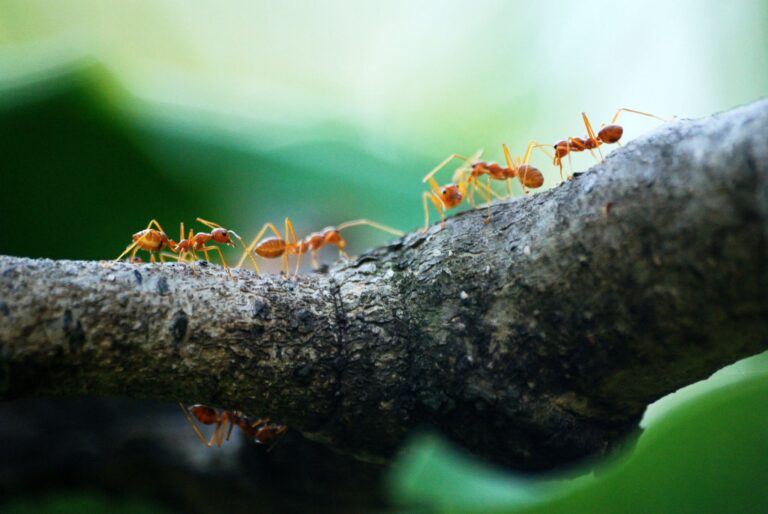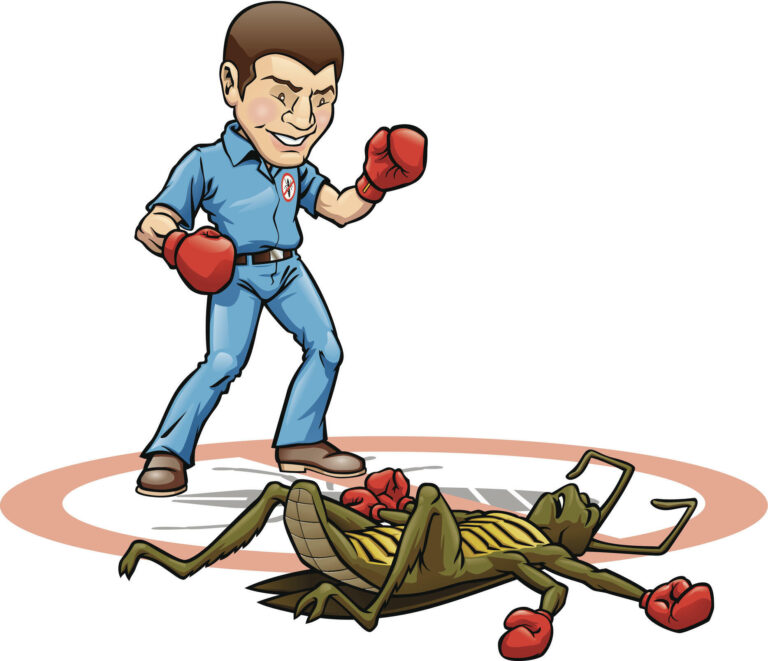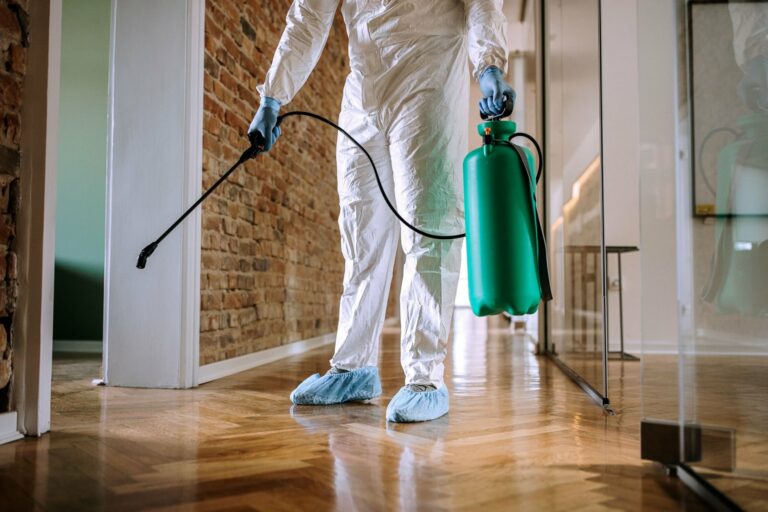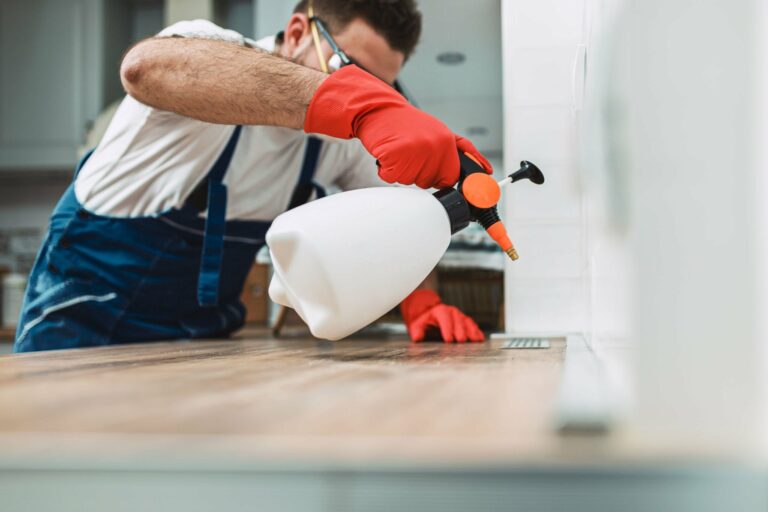Rental Property Pest Control: Tips for Landlords and Tenants
Are you a landlord or tenant dealing with pesky pests in your rental property? Don’t worry, we’ve got you covered with some helpful tips!
Imagine this: you’re a tenant who just moved into a new apartment and discovers a family of ants making themselves at home in your kitchen. Or perhaps you’re a landlord trying to prevent a termite infestation in your rental property.
Whatever the case may be, this guide on rental property pest control will provide you with the knowledge and strategies you need. From identifying common pests to implementing preventive measures, understanding tenant responsibilities, and even hiring professional pest control services, you’ll find practical advice to keep your rental property pest-free.
Identifying Common Pests
To effectively address pest control in your rental property, it’s important for you to be able to identify the common pests that may be present. By recognizing the signs of infestation early on, you can take swift action to prevent further damage and protect the health and safety of your tenants.
One common pest that you may encounter is the cockroach. These resilient insects are often found in warm and moist areas, such as kitchens and bathrooms. Look out for droppings, egg cases, and a musty odor as signs of their presence.
Another common pest is the bed bug. These tiny insects feed on human blood and can cause itchy bites. Check for small red stains on bedding, tiny brown exoskeletons, and a sweet, musty odor.
Additionally, rodents like mice and rats can wreak havoc on your property. Look for gnaw marks, droppings, and signs of nesting such as shredded paper or fabric.
Implementing Preventive Measures
Take proactive steps to prevent pests in your rental property. Implementing preventive measures is crucial to avoid infestations and create a healthy living environment for both tenants and landlords.
Start by regularly inspecting the property for any cracks or holes that pests can use to enter. Seal these openings with caulk or weatherstripping to block their entry points. Additionally, ensure that all doors and windows have screens in good condition to prevent flying insects from entering.
Maintaining cleanliness is another essential preventive measure. Regularly clean the property, paying special attention to areas where pests are commonly found, such as kitchens and bathrooms. Remove any food crumbs or spills promptly, and store food in airtight containers. Regularly empty and clean garbage cans to eliminate odors that may attract pests.
Landscaping plays a role in pest prevention as well. Trim shrubs and trees near the property to prevent pests from using them as bridges to enter. Keep the lawn well-maintained, as overgrown grass and weeds can provide hiding spots for pests.
Lastly, educate tenants about their role in pest prevention. Encourage them to report any signs of pests immediately so that action can be taken promptly. Provide guidelines on proper waste disposal and hygiene practices to minimize the risk of infestation.
Effective Pest Control Methods
To effectively control pests in your rental property, it’s important to employ a combination of preventive measures and strategic pest control methods. While preventive measures help in reducing the chances of infestation, it’s equally important to have effective pest control methods in place to address any existing pest problems.
One of the most commonly used methods is insecticide treatment. This involves using specific chemicals to kill and control pests. It’s vital to hire a professional pest control company that can safely administer the treatment and ensure the well-being of both tenants and the property.
Another effective method is the use of traps and baits. Traps can be placed in areas where pests are frequently seen, such as near garbage bins or in dark corners. These traps help in capturing pests, preventing them from reproducing and causing further damage. Baits, on the other hand, are designed to attract pests and poison them. This method is especially useful for controlling rodents and insects.
Additionally, regular inspections are crucial for effective pest control. By conducting routine inspections, you can identify any signs of pests early on and take appropriate action. This allows for timely intervention and prevents the infestation from spreading and causing extensive damage.
Understanding Tenant Responsibilities
- As a tenant, you’re responsible for maintaining a clean and hygienic living environment in your rental property. This includes taking measures to prevent pests from infesting your home.
- Regularly clean your living space, especially areas prone to moisture and food debris, such as the kitchen and bathroom.
- Ensure that all food is properly stored in sealed containers to discourage pests from being attracted to your rental property.
- Keep your garbage bins tightly closed and dispose of trash regularly to avoid providing a breeding ground for pests.
- Additionally, promptly report any signs of pest infestation to your landlord or property manager, as they may need to take further action to address the issue.
- It’s important to understand that failure to fulfill your responsibilities as a tenant may result in additional costs or even eviction.
- By maintaining a clean and hygienic living environment, you not only ensure your own comfort and well-being but also contribute to the overall pest control efforts in your rental property.
Communicating With Landlords/Property Managers
- Communicate openly and promptly with your landlord or property manager regarding any pest-related concerns or issues in your rental property. Effective communication is key to resolving pest problems in a timely manner.
As a tenant, it’s important to inform your landlord or property manager as soon as you notice any signs of pests in your rental unit. Delaying the communication may allow the infestation to worsen, making it more difficult and costly to eradicate.
When contacting your landlord or property manager, be specific about the pests you have encountered and provide detailed information about the extent of the problem. This will help them understand the severity of the situation and take appropriate action.
It’s also important to document any evidence of pests, such as photographs or videos, to support your claim.
Furthermore, maintain a respectful and professional tone when communicating with your landlord or property manager. Clearly explain your concerns and expectations regarding pest control measures. Ask about the steps they plan to take to address the issue and inquire about any responsibilities you may have as a tenant in terms of preparing the property for pest control treatments.
Remember that open and prompt communication can facilitate a collaborative approach to pest control, allowing for a faster resolution of the problem. By working together with your landlord or property manager, you can ensure a pest-free living environment in your rental property.
Hiring Professional Pest Control Services
When hiring professional pest control services, ensure that you thoroughly research and select a reputable company. Pest infestations can be a major headache for landlords and tenants alike, so it’s important to find a pest control provider who can effectively address the problem.
Start by asking for recommendations from friends, family, or other property owners in the area. Reading online reviews and checking the company’s website can also give you valuable insights into their reputation and track record.
Once you have a list of potential candidates, contact each company and ask them important questions about their experience, certifications, and the types of pests they specialize in. It’s also crucial to inquire about their methods and the products they use, making sure they align with your preferences and any specific requirements you may have.
Request a detailed quote that outlines the scope of the work, including the treatment plan, timeline, and cost. Comparing quotes from multiple companies will help you make an informed decision. Remember, the cheapest option may not always be the best choice.
Ultimately, hiring a professional pest control service will save you time, money, and stress in the long run.
Handling Pest Infestations Properly
To properly handle pest infestations, it’s essential that you promptly address the issue and take appropriate measures to eliminate pests from your rental property. Ignoring the problem will only worsen the situation and potentially lead to costly damages. As soon as you become aware of any signs of pests, such as droppings, chewed wires, or strange noises, you should take immediate action.
The first step is to identify the type of pest infestation you’re dealing with. This will help you determine the most effective method of eradication. Whether it’s rodents, ants, cockroaches, or bed bugs, each pest
Next, you should consider hiring a professional pest control service. These experts have the knowledge and experience to effectively handle infestations and prevent future occurrences. They’ll conduct a thorough inspection of your property, identify the source of the problem, and implement appropriate treatment methods.
In addition to professional assistance, there are several preventive measures you can take to minimize the risk of pests in your rental property. Regularly inspect the property for any potential entry points, such as cracks or gaps in walls and windows. Keep the premises clean and free from clutter, as pests are attracted to food and hiding places. Properly store food in sealed containers and dispose of garbage regularly.
Harmony in Rental Living: Proactive Strategies for Pest Control and Effective Collaboration
In conclusion, by being proactive in identifying common pests and implementing preventive measures, both landlords and tenants can effectively control pests in rental properties.
Clear communication between landlords and tenants is crucial in ensuring that everyone understands their responsibilities in preventing and addressing pest issues.
Additionally, hiring professional pest control services when necessary can provide effective solutions for pest infestations.
By taking these steps and working together, rental properties can be kept pest-free and comfortable for everyone involved.







